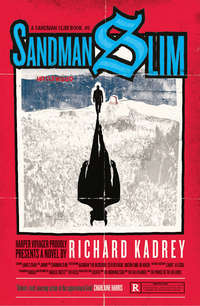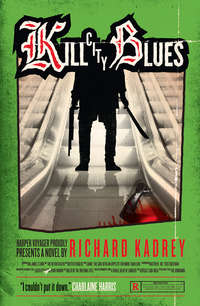
Полная версия
The Grand Dark
“Please don’t start a tedious screed, Enki,” said Hanna. “Can’t you see I’m trying to seduce these young innocents? You’ll put them right to sleep.”
“They’re already asleep,” said Enki. “So are you. So is everyone in this room. I’m telling you, we’re heading for a catastrophe.”
Largo had never heard anyone speak with such passion about politics before. Well, he had, but only for a few seconds. He sounds like one of those cranks standing on a chair in the Triumphal Square, condemning both the upper classes and the bourgeoisie. If he hates everyone, though, who is he speaking to?
“We must organize and resist the ruling class’s bloodlust,” said Enki. “Take up arms, if necessary.”
“Arms?” said Remy. “I used to think your speeches were scandalous fun. But if you insist on being arrested for treason you’ll have to do that alone.”
“I thought you were smarter than the others, Remy,” he said. “But you’re just another dullard artiste.”
Largo stared at Enki, angry but torn, wondering if it was his place to speak up to someone so prominent in Remy’s artists’ circle. Finally, he couldn’t stand it. “Don’t talk about her like that. She’s right. You are a bore. And I’ve never liked your paintings. They’re as pretentious as your politics.”
Remy laid a hand on Largo’s back and Hanna gave his leg a squeeze. “Good boy,” she said. Slowly, Largo settled back onto the chaise. It felt good to speak up, but it left him confused. Had he made a terrible mistake that would ruin Remy’s reputation with her friends? Enki said, “Largo to the rescue, so eager to attack a blind man.
I wonder how brave you’ll be when the bullocks come knocking on your door?”
“Why would they do that?” Largo said.
“Do they need a reason?”
What the hell does that mean? he wondered, before Branca’s comment about König came back to him. “It’s likely you won’t see him again.” Largo’s day had returned to being strange.
As he considered that, the other members of the group came back with Frida in tow. Bianca had the elegant woman’s fur draped across her shoulders. “You might want to keep your trap shut for a while, Enki,” said Hanna. “The vile ruling class is almost upon us.”
Frida greeted Remy and Hanna like old friends, and gave Largo a peck on each cheek when they were introduced. She and Enki studiously ignored each other.
“How is everyone?” Frida said.
“Still sober,” said Hanna. “So, in a word, tragic.”
Frida made a complex hand gesture at one of the servant Maras.
“At once, ma’am,” it said, and left the room.
She winked at the others. “A little secret I learned from the Baron. It’s not necessary to even talk to them,” she said. “We’ll have more drinks momentarily.”
Largo couldn’t help noticing a chimera—a long snakelike body with a miniature wolf’s head—with its fangs buried in the Mara’s leg so that the automaton limped. More ugliness, he thought. He wondered if the chimera was one of Hanna’s creations. He’d ask her later, if he got a chance.
“While we wait for our champagne …,” said Frida. She reached into her purse and took out what Largo thought at first was a tube of lipstick. Frida unscrewed the top with great care, tapped out some powder onto her hand, and sniffed it up. Then she held out the tube to the others. “Does anyone care to join me?”
The cocaine made its way quickly around the group. No one tried to hide what they were doing because many other partiers were doing the same thing. Even Enki took some of the powder. Largo wondered if he was trying to fit in or was simply a hypocrite. With luck, I won’t spend enough time with him to ever know.
On the end of the chaise, Lucie sat up and looked around sleepily. “What happened to my champagne?” she said. Everyone in the group laughed. No one replied because Frida handed her the tube and Lucie squealed with delight. She snorted a copious amount of the powder and looked at Remy in surprise. “When did you get here?” she said.
Remy put an arm around her and pulled her close, saying, “You’re a goose.”
In a few minutes, Baumann presented the group with hashish cigarettes, which they also passed around. Riding the blissful high of the cocaine and hashish, Largo disliked the too-handsome actor a little less.
The cigarettes made their way around the group once, then twice. The third time Remy puffed one she doubled over in a coughing fit. Lucie and Baumann laughed together. Largo patted Remy’s back, hoping it would help clear her lungs. It didn’t.
“My god, she’s turning blue,” said Bianca. Hanna spun around and looked up at Remy’s face. She pushed Lucie and Largo off the chaise and laid Remy on her back. She was limp.
“We have to get her breathing properly,” Hanna said. She tilted Remy’s head back and breathed into her mouth.
Frida touched Baumann’s shoulder. “Do you know Dr. Venohr?”
“Of course.”
“Bring him here. Quickly.”
Baumann jumped up and disappeared into the crowd, which remained oblivious to Remy’s situation. Largo held Remy’s hand as Hanna kept forcing air into her lungs. When, in a few minutes, she began to breathe on her own again, everyone relaxed. But it didn’t last long. Remy began to shake. Her arms bent up to her chest and her fingers twisted into claws. She grimaced and Largo had to hold her legs to keep her from kicking herself off the chaise.
Hanna looked at him. “Has this ever happened before?”
“Once or twice,” he said, “but never this badly.”
“Was she taking drugs those other times?”
Largo shook his head. “No. We were perfectly sober.”
“Does she take medication for it?”
“Not that I know of.”
After subsiding for a few seconds, Remy’s convulsions came back stronger than ever. “Oh my god,” Bianca whispered over and over like she was praying.
A moment later, Baumann returned in the company of a bald, bearded man in a tuxedo. Dr. Venohr gently pushed Hanna away from Remy so that he could look into her eyes. “How long have the convulsions been going on?” he said.
“A few minutes,” said Largo. “They’ve never been this bad before.”
“I’m afraid they have, but she didn’t want you to know about them,” said Dr. Venohr.
Largo stared at the man. “You’ve treated her?”
“I’ve known Remy her whole life. I’m an old friend of the family.”
Largo wondered what else Remy hadn’t told him. But all he could think about right now was whether she was truly ill.
What if she’s dying?
“Can you help her?”
Dr. Venohr opened a small black leather bag he had with him. “I believe so,” he said, and filled a syringe with a clear liquid from a small bottle. Tilting Remy’s head to the side, he injected the fluid directly into her jugular vein. Bianca continued repeating “Oh my god.” It was annoying, but no one bothered to stop her.
With the shot, it took only a few seconds for Remy’s convulsions to subside. Her arms and hands relaxed. Her legs stopped shaking. The grimace faded from her face. It looked almost as if she were asleep.
Largo said, “Is that it? Is she all right now?”
“For the moment,” said Dr. Venohr.
“Should we take her to a hospital?”
“That shouldn’t be necessary. But we should get her home. And she mustn’t be alone tonight. I assume you can stay and watch her?”
“Of course. For as long as it takes.”
“Good,” said Dr. Venohr. He packed the bottle and syringe in his bag. “I’ll call for my car. Can someone help you bring her to the door?”
Hanna and Baumann both volunteered.
Dr. Venohr got up and went to call his car. Largo pulled Remy up from the chaise. Hanna got on the other side and together they lifted Remy to her feet. Baumann went ahead of them, making an opening in the crowd. When they reached the door, Largo said, “Could someone find her coat? I don’t want her to get cold.” Frida, who had followed them, gestured to a Mara. It bowed and moved off. When Dr. Venohr’s car pulled up outside, they bundled Remy into her coat and laid her down in the back seat. Largo got in with her. Dr. Venohr got in the back on the other side and checked her pulse.
“Don’t worry,” said Frida through the open door. “She’ll be fine now that the doctor is here.”
Hanna said, “I’ll call tomorrow to see how she is.”
“Go,” Dr. Venohr told his driver, and they sped away.
They rode in silence for what felt like a long time. Largo kept an eye on Remy while Dr. Venohr periodically checked her pulse. Finally, he nodded. “She’s stable. I’ll give you some pills for her. With the injection, she should sleep through the night, but you aren’t to leave her side for any reason.”
“I won’t,” said Largo. Then, “I—I don’t have any money to pay you.”
Dr. Venohr waved a dismissive hand. “Don’t be foolish. As I said, I’m an old friend.”
“Thank you.” But he did feel foolish, and embarrassed. He felt like he needed to say something more, but he wasn’t sure what. “I notice you have a human driver. I thought someone in your position would have a Mara.”
Dr. Venohr frowned. “I practically live with Maras all day and night at the laboratory. I don’t need them bothering me at home too.”
“You don’t have any Maras at home?”
“None. Don’t misunderstand me. Maras are lovely devices and invaluable to my work, but there are times when I prefer the company of humans or to be left alone.”
“I understand. I’m not all that fond of them either,” said Largo, thinking of the dancing Black Widow. He wished he could tell Remy about it. He knew it would make her laugh.
They fell silent again until Dr. Venohr said, “I hesitated to bring this up earlier with Remy’s friends present, and I don’t want to alarm you, but I’ll need to take some of Remy’s blood before I leave tonight.”
“Why?”
Dr. Venohr sighed. “Have you ever heard of what laypeople call the Drops?”
Largo stiffened. People talked about the Drops all the time in Little Shambles, though he’d never seen a case himself. Supposedly, perfectly healthy people could be walking along the street, fall into a seizure, and be dead in an instant. Largo had never believed the stories, but now they made him afraid. “Yes, I have,” he said.
“There’s a slight chance—and I must emphasize that it is slight—that Remy’s convulsions are brought on by the virus that causes the Drops.” Dr. Venohr looked at Largo. “Tell me, does Remy buy goods on the black market? It doesn’t have to be anything large. It could be as small as a piece of jewelry.”
“I don’t think so,” said Largo. “I’m sure she would have mentioned it.”
“Excellent. Many black market goods are brought here from the ruins of High Proszawa. These goods can be contaminated with traces of the plague bombs dropped by the enemy during the Great War. The petty scavengers who loot the ruins are putting us all at risk.”
“Oh,” said Largo. “I had no idea.” He could barely understand what was happening tonight. He looked at Remy. The possibility of her dying was absurd. Impossible. Still, he gripped her hand tighter. “She had a shot recently. She said it was vitamins. Could that be the problem?”
Dr. Venohr said, “I’m aware of the injection. An associate of mine gave it to her. It has nothing to do with her current condition, I assure you.”
“That’s a relief,” said Largo, feeling as lost as ever.
The doctor checked Remy’s pulse again and said, “As I was saying before, even in the face of plague, life plays its jokes and presents us with little ironies.”
“What do you mean?”
The doctor looked at him. “Have long have you been addicted to morphia?”
“I don’t … I mean, I wouldn’t …”
“Come now. I’m not a police officer or your mother. I’m merely asking as a physician.”
“Perhaps a year,” said Largo quietly. “Though I’m not really addicted. I just, Remy and I, we just like it.”
“Of course. Of course.”
Largo leaned closer to the doctor. “How did you know?”
“It’s your eyes. Morphia affects the shape of the pupil. It’s very subtle. You have to look for it. Don’t worry, people on the street, your employer, even most police officers are unlikely to notice unless you go too far.”
“Thank you for the advice,” Largo said. “But before, why did you say there were ironies?”
Dr. Venohr chuckled to himself. “Because it appears that morphia may give users a certain amount of immunity to the plague virus.”
“That’s good news, then. Remy uses morphia too.”
“As much as you?”
Largo sagged against the back of the car. “No.”
“There you are,” said Dr. Venohr. “Continue to addle your senses, young man. Morphia might ruin your life, but it just might save it. That’s what I meant by irony.”
Largo looked out the window. “We’re almost there.”
When they arrived, Dr. Venohr helped Largo walk Remy into her flat and get her into bed. The doctor took a blood sample from her arm and placed it in his bag. On his way out he said, “Remember: do not leave her alone. I believe that Remy has a Trefle?”
“She does.”
Dr. Venohr took a card from his pocket and gave it to Largo. “You may reach me at this number day or night.”
“Thank you, Doctor.”
“I’ll see myself out,” he said. “Oh, and one more thing.”
“Yes?” said Largo.
The doctor laid a finger along the side of his nose. “Don’t tell anybody about our little chat regarding the plague. We don’t want to start a panic, do we?”
“Of course not. I won’t say a word.”
“You have some morphia with you, I take it?”
“A little.”
Dr. Venohr took a vial from his bag and set it on a gilt end table. “Here is a bit more. I don’t want you fainting tonight or being tempted to leave to purchase more. Of course, if anyone asks, you did not obtain this from me.”
“I appreciate it, Doctor. We both do.”
“Don’t appreciate it. Merely stay alert. Remy should be fine by morning. I’ll call then. Good night.”
“Good night.”
Largo sat down by Remy’s bed. The chair had a straight back and was uncomfortable because Remy didn’t buy it for sitting in. She used it as a place to drape her clothes when she got home from the theater. However, recently she’d bought a broken full-size Mara and used it like a dressing dummy. Now the chair belonged to Largo’s clothes when he spent the night. Tonight, though, he remained fully dressed and listened to Remy breathe. Every minute or so he touched her chest just to feel her heartbeat.
Remy’s flat was how Largo imagined all artists lived or, at least, wanted to. In her bedroom was a large framed poster from the Grand Dark. It was for a show called Cannibal Nuns of St. Maria; Remy’s first starring role had been that of the mad mother superior. The floor was covered in exotic, though worn and sometimes moth-eaten, carpets. The carpets were covered in shoes, clothes, magazines, books—whatever Remy had become bored with and couldn’t be bothered to put away. In the living room was a large, comfortable black sofa—a gift from a wealthy admirer. Because of that provenance Largo hated sitting on it, but he never mentioned it. By the window was a cage with a parakeet inside. The cage was covered at this hour and the small bird was asleep.
The walls were crowded with paintings and photochromes of friends. There was even an Enki painting hanging over the mantel. Largo disliked it, but less than the sofa. Since he was blind, Enki painted by feel, using his hands instead of a brush. He’d grab fistfuls of oil paint, then dab and splatter them across images of older artists and political figures. Trying to appear radical and dangerous, thought Largo. Just like all the other Xuxu artists, thinking they can bring down the government with a few paintings and posters.
To Largo, Enki’s paintings looked like drop cloths you might find in a child’s bedroom. Still, the man’s work was well thought of and his paintings were in great demand. Largo suspected that the canvas over Remy’s mantel had been his clumsy attempt at seducing her. Despite his defensiveness when it came to Remy’s admirers, in Enki’s case he just smiled.
She would never fall for something so obvious.
The lamp next to Remy’s bed lit the room with a pale white plazma glow and reflected off her porcelain Trefle. Largo thought of Rainer, whose old Bakelite Trefle wasn’t nearly as impressive. It was going to be a long night standing watch over Remy, and Rainer was older and smarter.
Maybe he’ll know something about Remy’s condition. And after that ridiculous party I wouldn’t mind hearing a friendly voice.
Largo touched Remy’s chest and felt her breathing steadily. When he was satisfied she was stable, he took the Trefle into the living room. Removing the handset, he waited for an operator. When she came on, he spoke Rainer’s number and waited. There was a click as the connection was made and then a soft purr as Rainer’s Trefle rang. Largo let it ring twenty times before hanging up.
He’s probably on the roof with his damned telescopes. Is there a meteor shower tonight?
He looked out the window, but the plazma diffused any light he might have seen streaking across the sky.
He went back into the bedroom and sat down, but the little chair immediately began hurting his back again, so Largo kicked off his shoes and climbed into bed with Remy. He lay down next to her with his hand over her heart and stayed that way until dawn.
ABOVE THE CITY
An excerpt from the Diaries of Gräfin Beatrice Henke1
It was a few minutes after ten in the evening. Or perhaps it was eleven. They’d lost track of time.
The airship moved along Lower Proszawa’s southeast border in a light rain. Buffeted by cool crosswinds, it turned slowly, tracing the eastern border over the Krieghund Mountains, heading north. The ship swayed in the updrafts from the somber peaks, but settled again as soon as it reached the open fields of Die Gefallenen.
None of this, however, was of any interest to the partiers in the ballroom, who were focused on Greta, the Chancellor’s wife’s niece—entirely naked and eating a slice of honey cake with her hands as she fell into Orlok’s lap. A handsome man with long ginger hair, he was the singer in one of the city’s most popular dance bands. Greta mashed the cake into his face and proceeded to kiss it off as the rest of the party laughed.
“Lucky Orlok,” said Gustav. “Another rich little bird lands right in his lap. What is his secret?”
“Don’t whine,” said Petersen. “You had your chance with her.”
“But I’m merely a poet. Not a musical god. All of my little birds flit away in the slightest breeze.”
Greta leaned away from Orlok and pulled Gustav over by his tie. She mashed the last of her cake into his face and began kissing him too. The three fell into a pile on the lounge’s silk pillows.
The gathering had begun as someone’s birthday party, but around the end of day three it had turned into something else. What, no one knew yet. Perhaps it would become clear after another day or two.
For now, though, people were interested in doing everything they could to feel anything … or nothing. The languid hedonism in the ballroom. And the foggy boredom in the airship’s forward observation deck. It was a greenhouse full of exotic plants, wrapping around the front of the craft. Helene watched as an industrialist named Frölich pried open one of the side windows and threw out a full champagne flute. “For my customers,” he said, giggling drunkenly. Soon, others were throwing things—food, plants, articles of clothing. Whatever they found amusing. Helene watched them from a bench by herself, growing bored with these people, their dull games, and the surroundings. She was wondering if there was some way that she could get off the airship without the others knowing when the small squirrel-like chimera that Frölich kept in the breast pocket of his jacket leaped to the floor and ran away. Instead of chasing his pet, Frölich and the others laughed as it disappeared from sight. Without thinking, Helene jumped from the bench and ran after the poor creature.
She soon found it cowering along one of the interior walkways. Picking it up, she cooed until it stopped trembling. When she heard boring Frölich heading down the corridor behind her, Helene didn’t hesitate to push through a door marked Authorized Personnel Only.
Once inside, she found herself on a bare metal gangway in the true interior of the airship. The craft’s skin stretched over and around her. It’s like being swallowed by a great silver whale, Helene thought. Along the ribs that kept the ship’s skin taut, an army of robin-size Maras scuttled up and down, occasionally darting out onto the skin to mend small holes. Brief bolts of white-blue plazma shot from a central shaft to the ribs, jolting the little Maras with power. Instead of being scared, Helene was delighted by the interior lightning storm.
“Fräulein?”
Helene jumped at the sound of the man’s voice, almost dropping the little chimera. She turned and found herself face-to-face with a tall, ruddy man in the white uniform of the ship’s crew.
“I’m very sorry,” she said. “I’ll go back with the others.”
“There’s no need for that,” the man said. “The Kapitän saw you rescue your little pet and sent me to invite you to see the control room. Only if you like, of course.”
It wasn’t a hard decision, as Helene had no desire to return to the tedious decadence of the party. She stroked the little chimera and said, “Thank you. I’d love to.”
The man made a small bow. “I’m Leutnant Dietze. Please follow me.”
As they went down a short flight of metal stairs, Helene told the Leutnant her name.
“It’s delightful to meet you, Helene. The control room is right through here,” Dietze said, opening a door for her.
It was a whole different world in the control room. A crew of six men and women nodded at her when she came in. The floor rumbled and the noise of the engines was like thunder. Helene looked around, startled by the sound.
A gray-haired man in a uniform with gold stripes on his shoulders approached her. “It is a bit loud, isn’t it? But you get used to it,” he said. “I’m Kapitän Siodmak. Welcome to my ship …”
“Helene,” she said quickly. Like the Leutnant had, he made a small bow, but he didn’t extend a hand as she expected. She realized why when she looked closer. Both of his arms were mechanical, intricate contraptions of wood and metal. When Helene looked at the rest of the crew again she realized that many of them also had artificial limbs or eyes. War veterans, she thought. To keep herself from staring, she turned back to the Kapitän and locked her gaze on his eyes.
If he noticed her shock, he didn’t let on. “Would you like to see how we pilot the ship?” he said.
“Very much,” said Helene, gripping the little chimera nervously.
Kapitän Siodmak swept his mechanical arm toward an intricate control panel that took up much of the room. Helene approached it tentatively. A complex array of dials, switches, gauges, and levers covered the console, which was strangely shaped. Instead of the hard lines she expected, the control panel was somewhat rounded, with small pipes that looked like veins running along the top and sides. The panel appeared vaguely organic to her, which wasn’t nearly as startling as what she saw under a glowing dome in the forward center of the console. There was a large knotted mass of what looked like pink tissue. It pulsed slightly with each bump and turn of the ship.
“Is that …?” she said.
“A chimera?” said the Kapitän. “Why, yes, it is. It’s why I’m able to chat with you. Our little friend here can pilot the ship for short periods and even set course for us. In case of emergency, it can help us land, but I don’t recommend the experience. It’s usually a bit bumpy.” The crew chuckled quietly at that.








